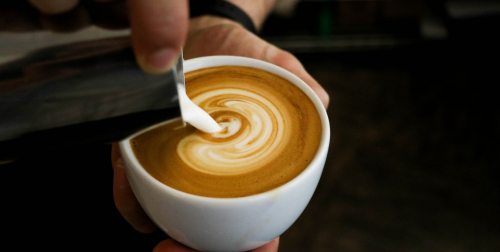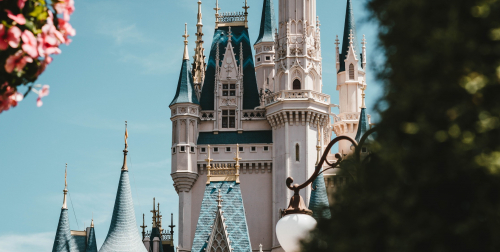A new blog post from Client Director, Sarah Williamson – where she highlights the positives of brands and businesses being specialists!
Olympic champions are often created by passionate people with a single-minded obsession or focus. They practise, improve, innovate…
We think of them as expert, focused, knowledgeable, committed, professional. They’re the very best in the world at what they do.
We don’t think about what they lack, what is absent. We don’t bemoan Mo Farah for focusing on his running rather than branching out into cycling or horse riding.
Why then don’t we as Marketers always see the positives of brands and businesses being specialists?
There was a lot of press coverage earlier in the summer about the deal Starbucks has struck with Nestle, allowing Nestle to sell coffee products under the Starbucks brand in retail. Nestle paid Starbucks £5.5bn in this deal, but still there was much surprise around the decision and many questioned why Starbucks couldn’t just do this themselves.
The deal between Starbucks and Nestle is effectively a licensing agreement that sees each brand playing to its own strengths. Starbucks will continue to focus on what they do best – marketing their premium coffee brand internationally and retailing through their own Starbucks shops. Nestle will continue to focus on what they do best – producing and distributing mass market products at scale in the grocery market, and in particular in the US. If you’d like to read more about the deal there’s some great commentary in this Marketing Week article.
Fundamentally, both brands are creating value for customers and shareholders, in the coffee market, but in different ways that reflect what each one is good at.
The strategy Starbucks has chosen is obviously in complete contrast to Coca-Cola’s recent decision to buy Costa Coffee from Whitbread for £3.9bn. Diversification away from sugary carbonated soft drinks into coffee and hot beverages makes a lot of sense and plays to Coca-Cola’s strengths in Marketing and Product development. Certainly there will be distribution benefits both for Coca-Cola brands and for Costa’s products as their distribution channels are very complementary. But does Coca-Cola have the expertise and capabilities to run and – critically – to grow a global coffee chain? This may be a huge challenge.

These recent deals have got me thinking about brands or businesses that play to their strengths, and scale those strengths to grow (vs. the alternative – brands and businesses that invest in and develop new competencies to grow, as Coca-Cola will need to do).
Take Disney – a brand that is superb at animation, telling compelling stories and creating magical experiences at their theme parks. A brand that knows their limits however, and chooses to license their brand into other categories and industries such as food, toy or clothing production. They are also outsourcing rather than producing these products themselves – although obviously still getting a fantastic income from the sales.

Or Saga holidays – who specialise in holidays for the over 50’s. Because the brand specialises in this audience, they know and relate to the audience and consequently they understand what it takes to create a perfect holiday experience for this age group – the luggage porterage, the transfers to and from the airport and so on.
In the food & beverage industry, achieving mastery in one type of cuisine – or even in one dish – is usually welcomed, assuming the brand does it well of course. For example in Paris, restaurant Le Relais has become an institution. People queue out the door for their menu of salad, entrecote steak and French fries and they don’t offer any other choices to their diners.
As restaurant critic Jay Rayner commented
“In an age of style over substance, when yak burgers are dribbled with ponzu and frottaged with Daikon, on menus boasting 93 dishes from 14 divergent culinary traditions, a restaurant that does only one thing really well is a thing of beauty”
Brands that have chosen where to specialise, and know their boundaries, are in a great position. They can focus on listening to their customers. Empathising with them. Continuously problem solving for them. Using their competencies to make a tangible difference to customers’ lives. And doing so better, or quicker, or cheaper than anyone else.
To my mind, the choice to specialise is in fact a great strategy. In the words of Oscar Wilde “Be yourself; everyone else is already taken”. If the business can combine their specialism with empathy, bravery and creativity, the business results will surely follow.
So ask yourself these 3 questions:
What is your business brilliant at? How might you do what you do so beautifully, so masterfully, so expertly, that your reputation precedes you and you have people queuing out of the door for your product or service…just like restaurant Le Relais?
How might your brand do things better, more quickly, more seamlessly, so you can delight your customers even more tomorrow than you did today? If your category were a Olympic sport, what details would you be obsessing over to secure that gold medal?
How might you step outside of your day to day business routines, and connect with your customers? How might you see through their eyes so you truly understand their needs, and can tailor your propositions and brand experience to them? What are your equivalents of Saga’s ‘luggage porterage’ and ‘hotel transfers’ promises?
We love working with brands on exactly these sort of strategic challenges – if you’d like to chat about how we might be able to help, please give us a call.
